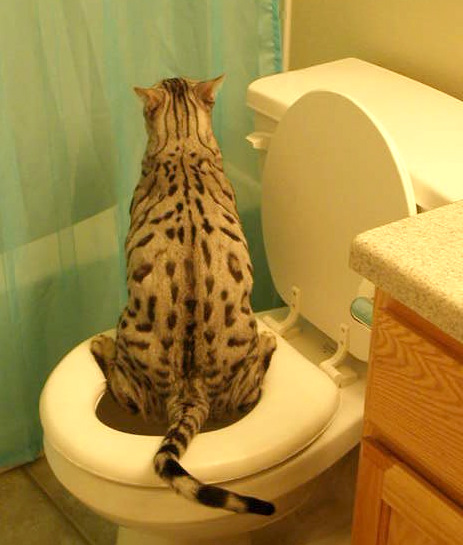Potential Issues of Flushing Cat Poop Down Your Toilet - Protect Your Pipes
Potential Issues of Flushing Cat Poop Down Your Toilet - Protect Your Pipes
Blog Article
Are you currently interested in advice around How to Dispose of Cat Poop and Litter Without Plastic Bags?

Intro
As pet cat owners, it's important to bear in mind just how we deal with our feline buddies' waste. While it may seem practical to purge pet cat poop down the toilet, this method can have damaging effects for both the environment and human health.
Environmental Impact
Purging cat poop presents unsafe microorganisms and parasites right into the water supply, posturing a significant danger to marine ecosystems. These pollutants can negatively impact aquatic life and compromise water top quality.
Health Risks
In addition to ecological problems, flushing cat waste can also position wellness dangers to humans. Pet cat feces might include Toxoplasma gondii, a parasite that can create toxoplasmosis-- a potentially serious health problem, particularly for expecting ladies and people with damaged immune systems.
Alternatives to Flushing
Fortunately, there are more secure and much more responsible ways to deal with feline poop. Take into consideration the adhering to choices:
1. Scoop and Dispose in Trash
One of the most typical approach of taking care of feline poop is to scoop it into a biodegradable bag and toss it in the trash. Make certain to make use of a committed litter scoop and dispose of the waste quickly.
2. Usage Biodegradable Litter
Choose biodegradable feline trash made from materials such as corn or wheat. These clutters are environmentally friendly and can be safely dealt with in the garbage.
3. Hide in the Yard
If you have a backyard, consider hiding feline waste in a marked area far from veggie yards and water sources. Make sure to dig deep adequate to prevent contamination of groundwater.
4. Install a Pet Waste Disposal System
Purchase an animal garbage disposal system especially made for pet cat waste. These systems utilize enzymes to break down the waste, minimizing smell and environmental influence.
Final thought
Responsible family pet ownership extends beyond giving food and shelter-- it additionally involves proper waste management. By refraining from flushing cat poop down the commode and going with alternative disposal approaches, we can reduce our ecological impact and safeguard human health.
Why You Should Never Flush Cat Poop Down the Toilet
A rose by any other name might smell as sweet, but not all poop is created equal. Toilets, and our sewage systems, are designed for human excrement, not animal waste. It might seem like it couldn’t hurt to toss cat feces into the loo, but it’s not a good idea to flush cat poop in the toilet.
First and foremost, assuming your cat uses a litter box, any waste is going to have litter on it. And even the smallest amount of litter can wreak havoc on plumbing.
Over time, small amounts build up, filling up your septic system. Most litter sold today is clumping; it is made from a type of clay that hardens when it gets wet. Ever tried to scrape old clumps from the bottom of a litter box? You know just how cement-hard it can get!
Now imagine just a small clump of that stuck in your pipes. A simple de-clogger like Drano isn’t going to cut it. And that means it’s going to cost you big time to fix it.
Parasitic Contamination
Believe it or not, your healthy kitty may be harboring a nasty parasite. Only cats excrete Toxoplasma in their feces. Yet it rarely causes serious health issues in the cats that are infected. Most people will be fine too if infected. Only pregnant women and people with compromised immune systems are at risk. (If you’ve ever heard how women who are expecting are excused from litter cleaning duty, Toxoplasma is why.)
But other animals may have a problem if infected with the parasite. And human water treatment systems aren’t designed to handle it. As a result, the systems don’t remove the parasite before discharging wastewater into local waterways. Fish, shellfish, and other marine life — otters in particular — are susceptible to toxoplasma. If exposed, most will end up with brain damage and many will die.
Depending on the species of fish, they may end up on someone’s fish hook and, ultimately on someone’s dinner plate. If that someone has a chronic illness, they’re at risk.
Skip the Toilet Training
We know there are folks out there who like to toilet train their cats. And we give them props, it takes a lot of work. But thanks to the toxoplasma, it’s not a good idea.

I hope you liked our section about How to Dispose of Cat Poop and Litter Without Plastic Bags. Thank you so much for taking time to read through our short article. You should take the opportunity to promote this content if you appreciated it. Thank you for going through it.
Browse Website Report this page